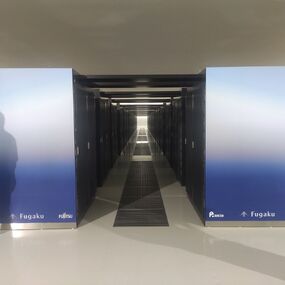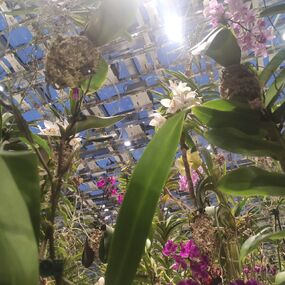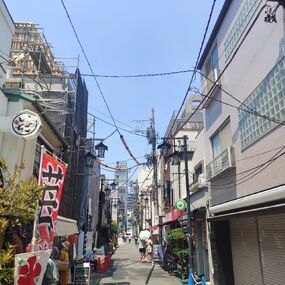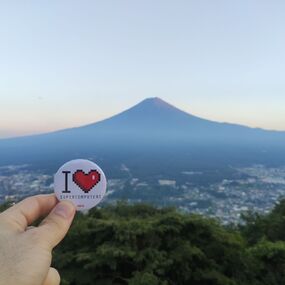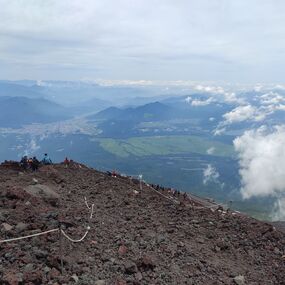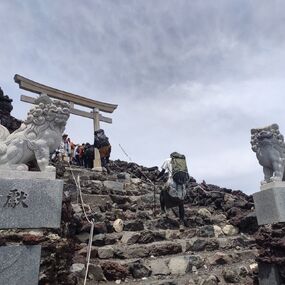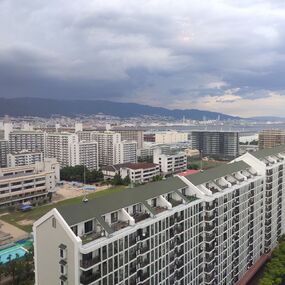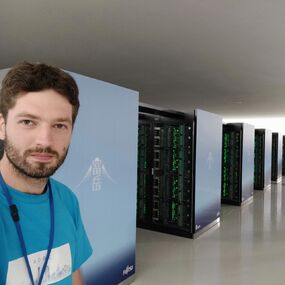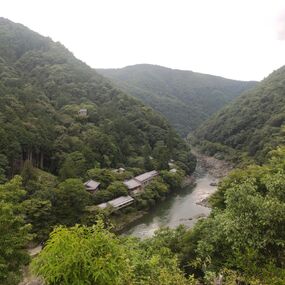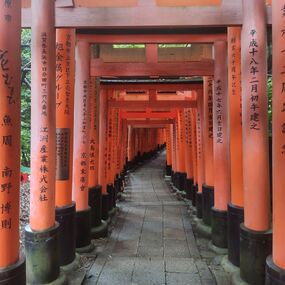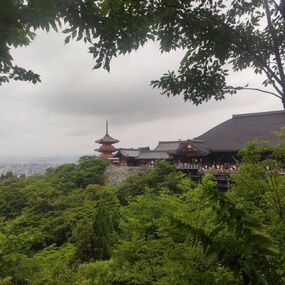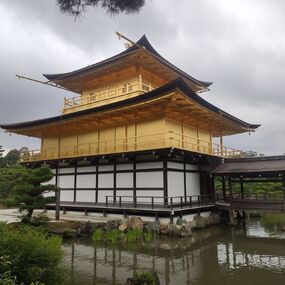Jakub Homola from the IT4Innovations Infrastructure Research Lab attended the International HPC Summer School on Challenges in Computational Sciences (IHPCSS) in Kobe, Japan, this July.
This prestigious event, designed primarily for PhD students and postdocs with a connection to high-performance computing, is organised by US, European, Japanese, and Australian institutions. The first edition of IHPCSS was held in 2010, and the venue has been regularly rotated between North America, Europe, and Asia. The Czech Republic hosted the event in 2018 in Ostrava, and Australia joined this year's edition. This year, the costs of students from EU countries were covered by the EuroHPC Joint Undertaking.
We asked Jakub Homola about his experience:
What was the selection process of the summer school participants like?
“Those interested in attending had to fill out an application form, which included questions about, among other things, the research I am working on, my current experience with HPC, and why the summer school would potentially benefit me. Based on the applications, a decision was then made on acceptance/non-acceptance. In total, about 60 students were accepted.”
Which part of the programme caught your attention the most?
“There were two main directions to choose from. The first was the basics of OpenMP for CPU and GPU, and the second was advanced MPI. Since I am already quite proficient in OpenMP, and it was useful to broaden my horizons regarding distributed memory programming, I chose MPI. The MPI lectures were the most interesting for me. Among other things, I learned about cartesian communicators and parallel IO using derived data types. I was also very interested in the Programming Challenge that ran in the background throughout the week of the summer school, where students competed against each other to see who could best optimise and parallelise the PageRank algorithm. The poster session, where we discussed our research with other students, was also engaging. What surprised me was the mentorship program and the soft skills section (I guess they know what we engineering students are missing), where I also got plenty of advice for the future.”
You met with experts in the field of supercomputing. Who impressed you the most?
“Erik Lindahl, one of the developers of the GROMACS software, probably impressed me the most. His talk on Software Engineering was focused on how to work efficiently in developing and maintaining not only scientific software. The keynote lecture by Satoshi Matsuoka was also interesting as he talked about the mindset behind the design of the Fugaku supercomputer and its successor.”
What was your impression of Kobe and Japan in general?
“Great. At first, I was afraid that I would get lost in the culturally different Japan, but after a few days, I discovered that the differences were not so striking. I eventually got used to the environment. The public transport mostly exceeded my expectations, but my sense of direction has sometimes let me down. In my experience, people in Japan are considerate, friendly, and willing to help and accommodate people. I think Kobe itself was nothing special (except that it is home to RIKEN and the Fugaku supercomputer).”
Do you have any interesting experiences or stories to share??
“I told myself that since I was going to Japan, I wouldn't just be there for the summer school; I would arrange a break from my business trip and look around Japan. Although I am not very keen on travelling, I have to say that I did the right thing. I explored the cities of Tokyo and Kyoto, but the biggest highlight for me was hiking up Mount Fuji. The view towards Fuji is truly indescribable. I also happened to see the fireworks ceremony to celebrate the start of the hiking/climbing season.”
What would you recommend others who would like to apply for the following year's summer school?
“Do not be afraid to apply. The organisers cover all financial expenses, so it is just a matter of having a week to spare and wanting to participate. In my experience, I can definitely only recommend attending IHPCSS, whether it be for the technical program, the soft skills, mentoring, or the opportunity to meet people from all over the HPC world.”
Summer school website: https://ss24.ihpcss.org/
* This year's edition was sponsored by RIKEN (Japan), the National Center for Supercomputing Applications and the Texas Advanced Computing Center (USA), EuroHPC Joint Undertaking (Europe), and the Pawsey Supercomputing Research Centre (Australia), together with EPCC (UK) and NICIS CHPS (South Africa), who conducted internal selection procedures.

